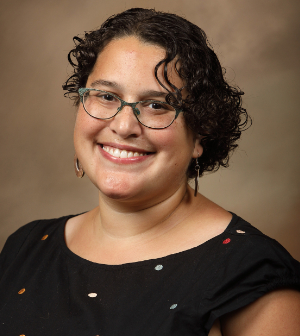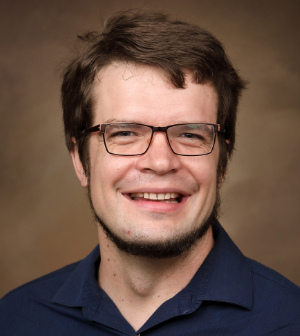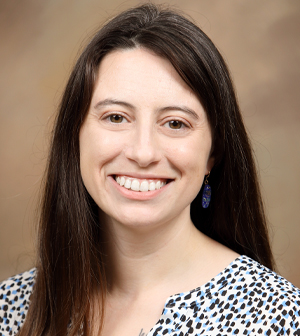Mercer University students are helping solve real-world challenges related to foreign policy through the U.S. Department of State’s Diplomacy Lab.
The University’s first Diplomacy Lab course took place last semester, with students in Dr. Rachael Goodman’s poverty alleviation class examining different skill assessment methods that could be used to measure the effectiveness of State Department programs.
Teaching people new skills is a common poverty alleviation strategy, Dr. Goodman said.

“Our job was to do a literature review and see what is being done right now in terms of measuring skills,” she said. “The issue is that there are lots of programs to teach skills, but it’s really tough to measure if a skill has been acquired and how well it’s been acquired.”
The class worked with the Monitoring Evaluation Learning and Innovation (MELI) Unit of the Bureau of Educational and Cultural Affairs, which wanted to look specifically at assessing leadership and entrepreneurship skills.
These can be challenging to measure because many methods rely on self-reporting, which may not be accurate. In addition, the State Department has programs worldwide, and what makes a good leader varies across countries, Dr. Goodman said.
She divided students into two groups, with one focused on leadership and the other on entrepreneurship. Students dug into the available literature about different evaluation methods and their effectiveness, compiling their research and recommendations into two reports.
They met via video conference with State Department representatives throughout the project and presented their findings at the end of the semester. The video calls also gave students the opportunity to ask questions about what it’s like to work at the State Department.
Goodman watched her students grow throughout the process as they became adept at reviewing the literature, understanding the research and analyzing different approaches. They came to understand that sometimes the ideal method isn’t the best option based on the situation, she said.
“Watching them learn about that was, for me as a teacher, really cool to see,” she said.
Cass Conrad, a mechanical engineering major who graduated in December, said she learned that evaluations are complex and concluded that no one method will provide the whole picture.
“What we finally recommended was you should do a mixture of a lot of things and get data from a lot of sources,” Conrad said. “So, if you’re going to do a survey, that’s great. Also, you should do a focus group, and also, if you’re doing leadership, you should talk to the people that aren’t your leaders and ask them how they feel the leader is doing now as opposed to before the program.”
The findings provided the State Department with new methods and resources to explore, as well as support for the techniques it’s already using, said Elizabeth Botkin, a monitoring and evaluation specialist at MELI.
“There were recommendations about mixed method approaches, using focus group discussions, site visits, and the importance of performance monitoring — collecting data throughout the program and not just at the end,” she said. “All of those are things that we’re working on and will be incorporated in our work as we move forward if it hasn’t already been.”
Savannah Lackey, a global health studies major, said she enjoyed conducting research for the State Department.
“I felt like the work and research that I was doing as a student was really important,” she said. “Having a class where my research could have real-world implications just made me feel so much more confident in my research and in my abilities to do research.”
Spring classes examine Inflation Reduction Act, Haitian diaspora
Two more Diplomacy Lab courses are now underway in the College of Liberal Arts and Sciences.
An environmental politics and policy class, taught by Visiting Lecturer of Political Science Ben Hoyt, is examining the effects of the Inflation Reduction Act’s environmental policies on U.S. trade partners. The act offers funding, programs and incentives to accelerate America’s transition to a clean energy economy.

“The Inflation Reduction Act is the single biggest piece of climate legislation in U.S. history and certainly the biggest piece of environmental legislation in 30 or 40 years,” Hoyt said. “So, it’s a great opportunity to have the students examine it from both a domestic and international perspective to look at its impacts.”
At the end of the semester, the class will deliver a presentation to State Department officials, provide talking points that American diplomats can use when speaking with concerned allies, and offer policy recommendations.
“For any student who is interested in public policy, in environmental politics, in any of these questions, there’s no greater opportunity than to actually see how the process works firsthand and also work in a setting that is roughly analogous to how you would work at an NGO (nongovernmental organization) or a department like this,” Hoyt said.
A studies in Francophone cultures class taught by Assistant Professor of French Dr. Katherine Roseau is examining the Haitian diaspora in Georgia and north Florida for the State Department.

“They are wanting to map the Haitian diasporas with the goal of being able to disseminate information about U.S. interventions or interactions in Haiti,” Dr. Roseau said.
The class will compile a spreadsheet with where the diasporas are, what organizations are in the different locations, who represents them in Congress and if they have any ties to Haitian leadership.
Students also will interview a member of the Haitian diaspora about identity and how the interviewee is continuing cultural activities in the United States. The students are learning Haitian Creole to greet the interviewee and then will conduct the interview in French or English, depending on the interviewee’s preference.
“What I really liked about the idea of doing this was that it’s real life,” Dr. Roseau said. “It’s something that real people are going to use, and it’s going to maybe even affect relations between the U.S. and Haiti. And, I do have some students who are interested in working for the Foreign Service, so it directly relates to the kind of work they might be doing later.”










